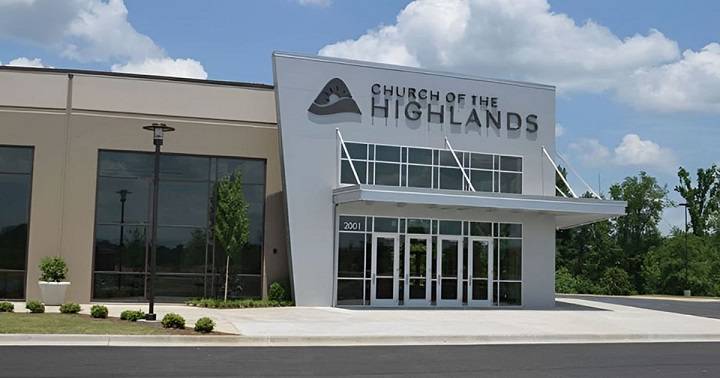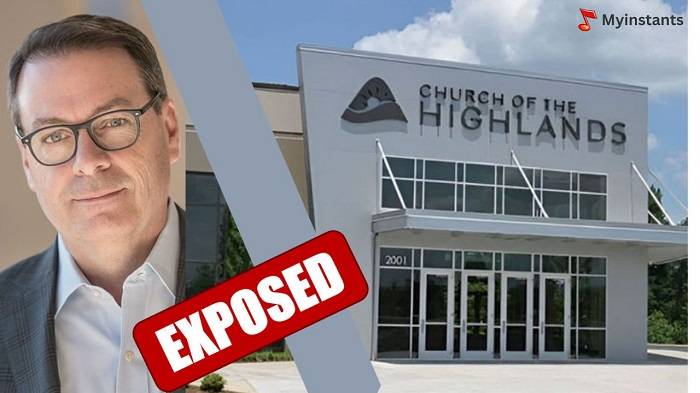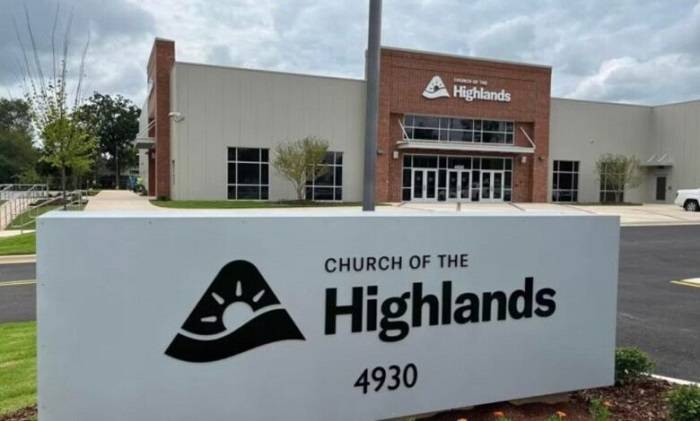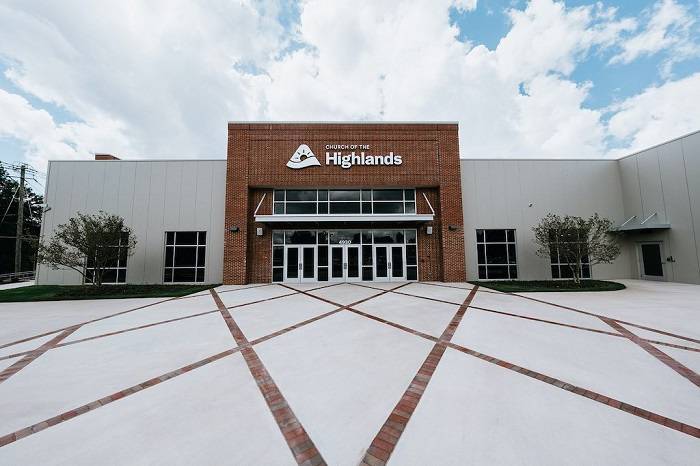The Church of the Highlands, one of the largest and fastest-growing churches in the United States, has experienced both admiration and scrutiny over the years. Founded in 2001 in Birmingham, Alabama, by Pastor Chris Hodges, the church has grown exponentially, drawing thousands of attendees to its multiple campuses and influencing a large network of affiliated churches. However, like many large religious organizations, it has faced its share of controversies and criticisms. This blog post will delve into various aspects of the Church of the Highlands, exploring its history, growth, and the controversies that have led to public scrutiny.
History and Growth of the Church of the Highlands
A. Founding and Vision
The Church of the Highlands was founded by Pastor Chris Hodges and a group of 34 people in Birmingham, Alabama. The church’s vision was to reach people with the message of Jesus Christ in a contemporary and accessible way. From its humble beginnings, the church quickly gained a following due to its engaging worship services, dynamic preaching, and commitment to community service.
B. Expansion and Influence
The church’s rapid growth led to the establishment of multiple campuses across Alabama and beyond. With a focus on small groups, modern worship music, and practical teaching, the Church of the Highlands became a model for other churches looking to grow and engage with their communities. The church also launched Highlands College, an institution dedicated to training future church leaders.
Core Beliefs and Practices
A. Doctrine and Theology
The Church of the Highlands adheres to evangelical Christian beliefs, emphasizing the authority of the Bible, the importance of a personal relationship with Jesus Christ, and the role of the Holy Spirit in the life of a believer. Their doctrine aligns with mainstream evangelicalism, promoting salvation through faith in Jesus Christ and the necessity of baptism and discipleship.
B. Worship and Community
Worship services at the Church of the Highlands are characterized by contemporary music, relevant teaching, and a welcoming atmosphere. The church places a strong emphasis on small groups, believing that life change happens best in the context of relationships. Community service and outreach are also central to the church’s mission, with numerous initiatives aimed at helping the local and global community.
Controversies and Criticisms
A. Financial Transparency
One of the primary criticisms leveled against the Church of the Highlands involves financial transparency. As a megachurch with substantial resources, questions have been raised about how funds are managed and allocated. Critics argue that the church’s financial dealings are not as transparent as they should be, leading to concerns about accountability and stewardship.
Tithing and Donations
The church encourages members to tithe and give generously, which has fueled its rapid growth and ability to fund numerous projects. However, the lack of detailed financial disclosures has led some to question whether the funds are being used appropriately. Transparency in financial matters is crucial for maintaining trust among congregants and the broader community.
B. Leadership and Governance
The leadership structure of the Church of the Highlands has also come under scrutiny. Critics have pointed out that the church’s governance appears to be highly centralized, with significant power concentrated in the hands of a few senior leaders. This has raised concerns about accountability and the potential for abuse of power.
Pastor Chris Hodges
As the founding pastor, Chris Hodges has been the face of the Church of the Highlands. While many admire his leadership and vision, others have criticized him for wielding too much influence and not being sufficiently accountable to the congregation. The church’s governance structure, which lacks a congregational voting system, has been a point of contention.
C. Political Involvement
Another area of controversy involves the church’s involvement in political matters. Pastor Chris Hodges has been criticized for his social media activity, particularly for liking and following posts and accounts that some view as politically divisive or insensitive. This has led to accusations that the church is aligning itself with specific political ideologies, which can alienate members who hold different views.
Social Media Activity
The scrutiny over Pastor Hodges’ social media activity highlights the broader issue of how church leaders engage with politics and social issues. While some argue that religious leaders have a responsibility to speak out on moral and ethical issues, others believe that the church should remain apolitical to maintain unity among its diverse membership.
D. Cultural Sensitivity and Diversity
The Church of the Highlands has faced criticism regarding its approach to cultural sensitivity and diversity. Some former members and community leaders have accused the church of failing to adequately address issues of race and inclusivity. These concerns have been amplified by incidents involving the church’s outreach programs and interactions with minority communities.
Diversity Initiatives
While the church has made efforts to promote diversity within its leadership and congregation, critics argue that more needs to be done to ensure that all members feel represented and valued. The effectiveness of these initiatives is often measured by the tangible changes in leadership diversity and the inclusivity of church programs and events.
E. Megachurch Criticisms
As a megachurch, the Church of the Highlands is not immune to the general criticisms often directed at large religious institutions. These include concerns about the commercialization of religion, the potential for superficial worship experiences, and the difficulty in fostering genuine community in such a large setting.
Authenticity in Worship
One of the main challenges for megachurches is maintaining authenticity in worship and community life. Critics argue that the focus on production value and numerical growth can sometimes overshadow the deeper spiritual needs of the congregation. Balancing the demands of running a large organization with the need for personal pastoral care is an ongoing challenge.
Impact on the Community
A. Positive Contributions
Despite the controversies, the Church of the Highlands has made significant positive contributions to the community. Their outreach programs, which include food drives, medical missions, and disaster relief efforts, have helped thousands of people in need. The church’s commitment to service is a core part of its identity and mission.
Community Outreach
Programs like the annual Serve Day, where members volunteer in various community service projects, exemplify the church’s dedication to making a tangible difference in the lives of others. These initiatives foster a sense of purpose and community among members, encouraging them to live out their faith in practical ways.
B. Educational Programs
Highlands College, the church’s educational arm, provides training for future church leaders and ministry workers. This institution has helped equip many individuals for service in various capacities, both within the church and in the broader community.
Leadership Training
The college’s emphasis on leadership development and practical ministry skills has produced a new generation of church leaders who are prepared to meet the challenges of contemporary ministry. The impact of this training extends beyond the Church of the Highlands, as graduates often take on leadership roles in other churches and organizations.
C. Economic Impact
The growth of the Church of the Highlands has also had an economic impact on the local community. The church employs a significant number of people and contracts with local businesses for various services, contributing to the local economy.
Job Creation
By providing employment opportunities and supporting local vendors, the church plays a role in the economic development of the areas where it operates. This economic impact is an often-overlooked aspect of the church’s presence in the community.
Response to Criticisms
A. Efforts at Transparency
In response to criticisms about financial transparency, the Church of the Highlands has taken steps to improve its reporting and accountability. This includes publishing annual financial reports and providing more detailed information about how funds are used.
Financial Accountability
The church’s efforts to enhance financial transparency are aimed at rebuilding trust and demonstrating a commitment to responsible stewardship. Ensuring that congregants and the public have access to clear and accurate financial information is essential for maintaining credibility.
B. Addressing Leadership Concerns
The church has also made efforts to address concerns about its leadership structure. This includes implementing measures to increase accountability and ensure that decision-making processes are more inclusive.
Governance Reforms
Reforms in governance may involve establishing advisory boards, increasing lay leadership involvement, and creating mechanisms for congregational input. These changes can help distribute leadership responsibilities and foster a more collaborative environment.
C. Promoting Diversity
In response to criticisms about diversity, the Church of the Highlands has launched initiatives aimed at increasing the representation of minority groups within its leadership and congregation. This includes diversity training, outreach efforts, and partnerships with organizations that promote racial reconciliation.
Inclusive Practices
The church’s commitment to promoting diversity is reflected in its programming and leadership development efforts. By fostering an inclusive environment, the church aims to better reflect the diversity of the communities it serves.
D. Balancing Growth with Authenticity
The Church of the Highlands continues to navigate the challenges of being a megachurch while striving to maintain authenticity in worship and community life. This includes emphasizing small groups, personal discipleship, and meaningful community engagement.
Spiritual Depth
Balancing numerical growth with spiritual depth requires intentional efforts to create spaces for genuine relationships and spiritual formation. The church’s focus on small groups and discipleship programs is aimed at fostering deeper connections among members.
The Future of the Church of the Highlands
A. Continued Growth and Expansion
The Church of the Highlands shows no signs of slowing down. With plans to continue expanding its campuses and outreach programs, the church is poised to have an even greater impact in the coming years.
Strategic Planning
Future growth will likely involve strategic planning to ensure that new campuses and programs align with the church’s mission and values. This planning will be crucial for maintaining the integrity and effectiveness of the church’s ministry.
B. Evolving Leadership
As the church grows, its leadership will need to evolve to meet new challenges and opportunities. This includes developing new leaders, adapting to changing cultural contexts, and remaining responsive to the needs of the congregation and community.
Leadership Development
Investing in leadership development will be key to sustaining the church’s growth and impact. This includes identifying and mentoring emerging leaders and providing ongoing training and support.
C. Navigating Controversies
The Church of the Highlands will need to continue addressing controversies and criticisms with transparency and humility. This includes being proactive in identifying potential issues and engaging with critics constructively.
Open Dialogue
Engaging in open dialogue with critics and the broader community can help the church navigate controversies effectively. By listening to feedback and making necessary changes, the church can build trust and demonstrate a commitment to integrity.
The Church of the Highlands has made a significant impact on its community and the broader evangelical landscape. While it has faced its share of controversies and criticisms, it has also demonstrated a commitment to growth, service, and spiritual development. As the church continues to navigate the complexities of being a large religious institution, its ability to address concerns and adapt to changing circumstances will be crucial for its future success.
The legacy of the Church of the Highlands is a complex one, marked by both remarkable achievements and significant challenges. By continuing to strive for transparency, accountability, and inclusivity, the church can build on its strengths and address its weaknesses, ensuring that it remains a vital and positive force in the lives of its members and the broader community.





